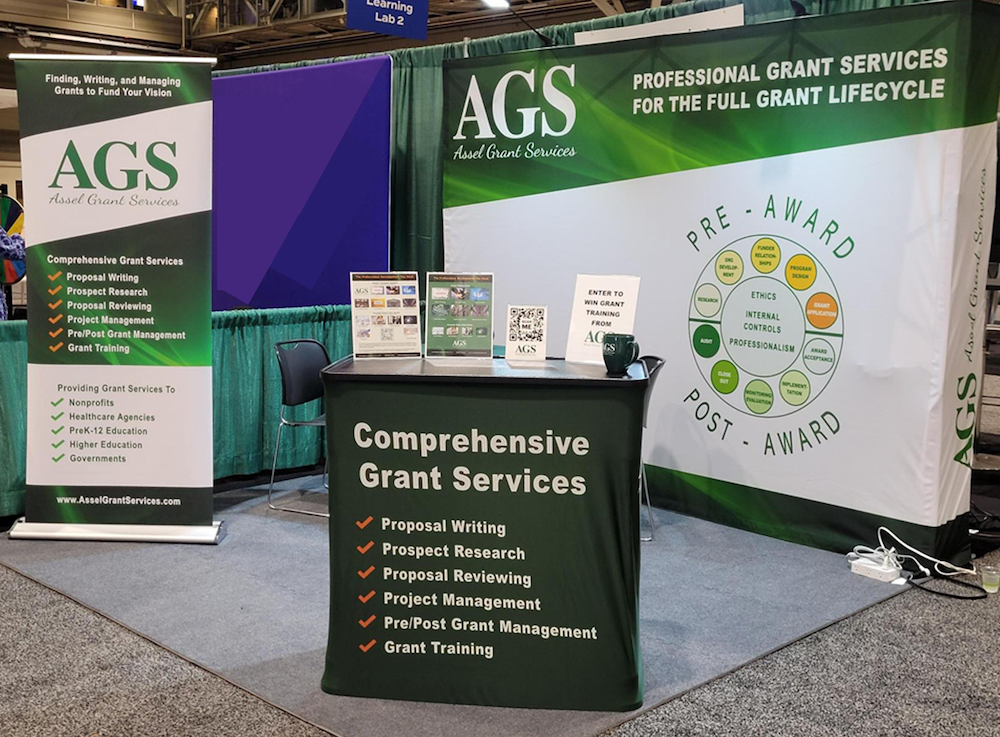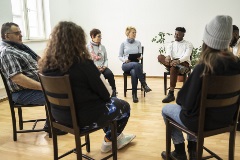02 Jun How to Build and Maintain Strong Relationships With Grant Partners by Hayley Waynick, GPC
I recently attended a webinar through the Grant Professionals Association entitled “Pet Peeves of Funders.” The trainer had conducted extensive surveys with grant making entity officers in her area to assess their biggest pet peeves with the organizations they fund. One program officer surveyed shared that...
26 May Memorial Day: Remembering those who have sacrificed for our freedom and supporting our Veterans by Kellie Brungard, GPC
This Memorial Day, we recognize the sacrifice those who serve our country have made; through their time, families, and, ultimately, their lives. Assel Grant Services recognizes and pays gratitude to those who have served our country and takes this time to acknowledge the history, a...
24 May Funding Alert! Grants for Runaway and Homeless Youth
Department of Health and Human Services – Administration for Children & Families (ACYF) Attention organizations and communities working to end youth homelessness, adolescent pregnancy, and domestic violence! The Department of Health and Human Services (HHS) - Administration on Children, Youth and Families (ACYF) and Family and Youth Services Bureau (FYSB)’s Runaway and Homeless Youth (RHY) Program is accepting applications for the basic center (BCP) and street outreach (SO) programs, which will provide temporary shelter and counseling services to youth who have left home without the permission of parents or guardians, have been forced to leave home, or homeless youth who might otherwise end up in law enforcement custody, the child welfare, or juvenile justice systems. These programs were created in response to a growing concern for youth in need of long-term, supportive assistance that emergency shelter programs were not equipped to provide, and to provide prevention and intervention services to runaway, homeless, and street youth who have been subjected to, or are at risk of being subjected to, sexual abuse, sexual exploitation, and severe forms of trafficking in persons.14 May Managing Up in a Deadline-Driven World by Kellie Brungard, GPC
Collaborations are a growing trend in the grant industry, but how do you successfully lead a project without pulling your hair out? Managing projects with multiple parties involved is sometimes the most prominent barrier experienced in a project. Our calendar has been booked full of new and exciting projects. While this is wonderful, our deadline-driven world means staying on top of proposals, attachments, and signatures to avoid that day-of submission panic. Let’s discuss some tips on how you can manage up to keep your projects on track and your professional relationships intact!28 Apr AGS at AFP ICON in New Orleans
Last month, three of our staff - our President/CEO, Julie Assel; our VP of Operations, Julie Alsup; and Administrative Assistant, Katie Kendle - traveled down to New Orleans to the AFP ICON conference to exhibit and talk to development staff from across the world about...
21 Apr Appreciating and Engaging Your Volunteers by Roxanne Jensen, Ed.S., GPC
16 Apr Funding Alert! Grants for Certified Community Behavioral Health Clinics!
Substance Abuse and Mental Health Services Administration (SAMHSA) Attention community-based behavioral health non-profit organizations, local government behavioral health authorities, and existing Certified Community Mental Health Clinics (CCMHC) and Certified Community Behavioral Health Clinics (CCBHC)! Under the U.S. Department of Health and Human Services, SAMHSA’s Center for Mental Health Services (CMHS) is accepting applications for 2023 CCBHC programs for organizations seeking to become CCBHCs under the planning, development, and implementation (PDI) and improvement and advancement (IA) for existing CCHBCs.03 Apr Funding Alert! School Violence Prevention Program Grants
Department of Justice– Office of Community Oriented Policing Services Attention school district and government leaders! The Department of Justice (DOJ) – Office of Community Oriented Policing Services is accepting applications for the COPS Office 2023 School Violence Prevention Program (SVPP). The COPS Office is responsible...
03 Mar Equity in Grants Series: Funding Opportunities for Racial Equity – The Spencer Foundation
As part of a series throughout Black History Month, Assel Grant Services (AGS) provided various resources on racial equity to help grant professionals become better equipped to guide their organizations towards more equitable services, find funding, and better articulate into grant proposals the Diversity, Equity, and Inclusion (DEI) work their organizations are already doing. Topics included writing with a racial equity lens, resources for your toolbox, and measuring progress. Last week, we highlighted a federal opportunity addressing racial equity in community health. This week we are wrapping up the series with a foundation opportunity for racial equity research in education. The Spencer Foundation is accepting applications for Racial Equity Research Grants to support education research projects that will contribute to understanding and ameliorating racial inequality in education. The Spencer Foundation invests in research that cultivates learning and transforms lives, with goals to support projects that:- create a better society;
- support high-quality education;
- broaden the diversity of scholars and scholarship in research;
- strengthen the impact for improving educational practice; and
- make education research more accessible.










